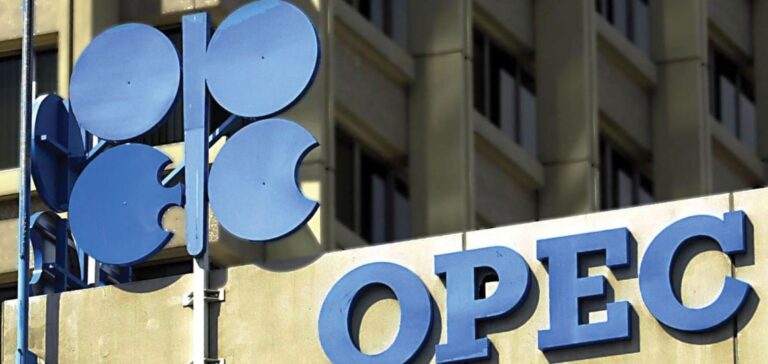The Organization of the Petroleum Exporting Countries and its allies (Opec+) confirmed on May 3 a sharp acceleration of oil production for the month of June, jointly decided by eight of its members. Saudi Arabia, Russia, Iraq, the United Arab Emirates, Kuwait, Kazakhstan, Algeria and Oman will add 411,000 barrels per day to the market, according to a statement issued after a ministerial meeting brought forward to Saturday. This increase maintains the level set in May, well above the 137,000 barrels initially planned in the phased reintegration plan.
A strategy shift after years of cuts
“Opec+ just dropped a bomb on the oil market,” said Jorge Leon, vice president at Rystad Energy, to AFP. “Following last month’s signal, today’s decision sends a clear message: the group is changing strategy and seeking to regain market share after years of cuts,” he added.
This reversal is seen as a move to strengthen ties with the United States. Shortly after taking office, President Donald Trump urged Riyadh to boost production to lower prices. Opec+, established in 2016 through an agreement between core members and several allies including Russia, had until now supported prices by curbing supply, keeping millions of barrels in reserve.
Crude prices continue to decline
The decision comes as oil prices continue to retreat. On May 2, Brent crude for July delivery traded at $61.29, down 1.35%, while US West Texas Intermediate (WTI) dropped 1.60% to $58.29.
This decline results from a combination of rising supply and weakening demand, particularly in China. “Crude remains under pressure due to a potential increase in Opec+ production and concerns about global demand, particularly in China,” said Jay Hatfield, Chief Executive Officer at Infrastructure Capital Advisors.
Non-compliance penalties and geopolitical calculation
Beyond the coordinated increase, the move is seen as a message to members failing to adhere to quotas. Arne Lohmann Rasmussen, chief analyst at Global Risk Management, believes it is also meant to “punish cheaters” within the group. Kazakhstan, in particular, has recently exceeded its production limits without implementing the agreed compensatory measures.
Other analysts suggest geopolitical motivations. Should negotiations over Iran’s nuclear programme or a Russia-Ukraine ceasefire succeed, additional volumes could return to the market if US sanctions are partially lifted. According to Carsten Fritsch of Commerzbank, Opec+ is attempting to pre-empt and secure its market position ahead of any adverse developments.
Mounting pressure on US producers
This production increase could exacerbate difficulties for US producers. According to SEB analyst Ole Hvalbye, “production would no longer be profitable below $55 over a prolonged period.” A return to a volume-based strategy could weaken these players, especially with global demand already impacted by the US-China trade war.
Since Donald Trump’s arrival at the White House, prices have dropped by nearly 25%, falling to their lowest since February 2021. The eight Opec+ members behind this increase plan to meet again in early June to reassess the situation. The statement suggested a “pause or reversal” may be considered depending on market conditions.






















